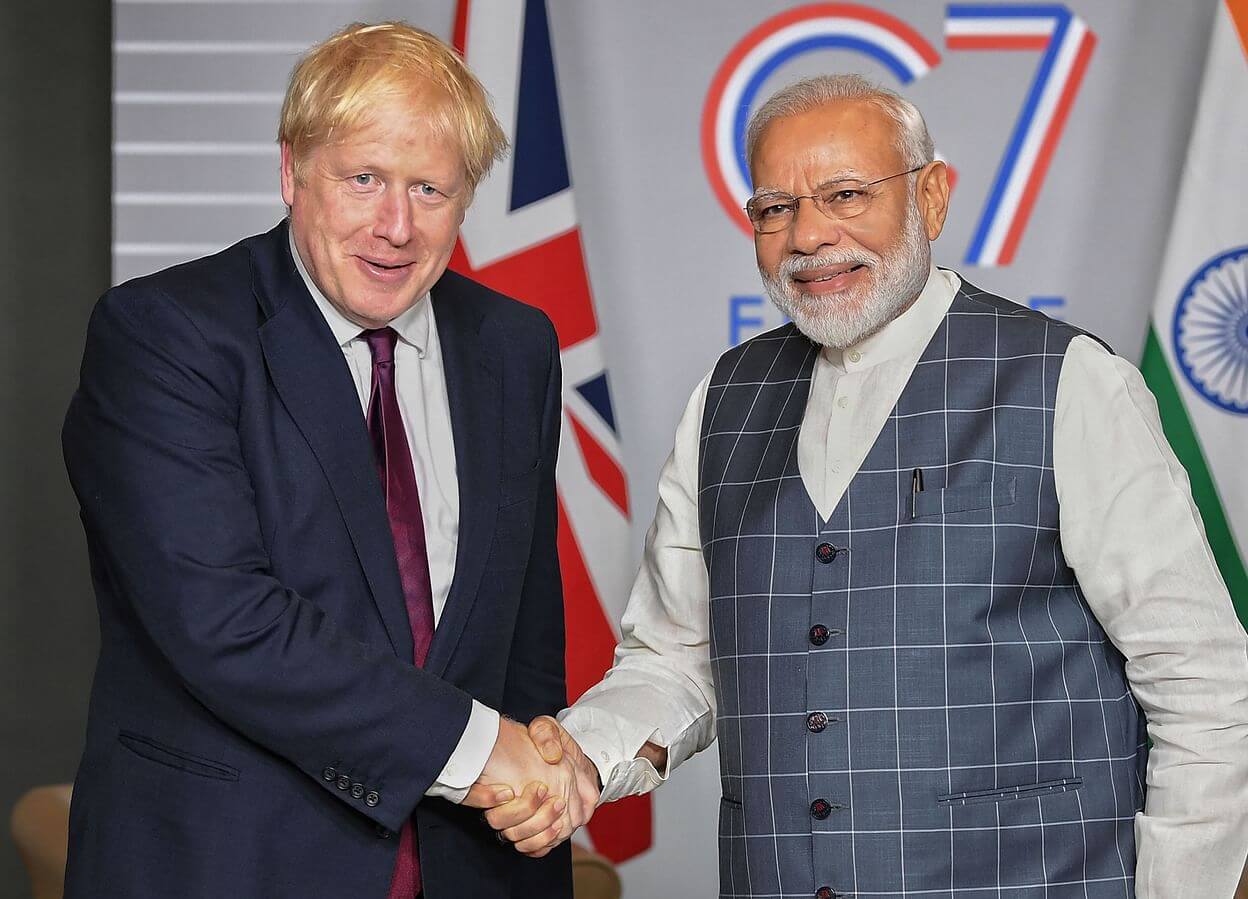As the United Kingdom (UK) and the European Union (EU) have finalised their Brexit trade deal, India and the UK are set to finalise several bilateral trade pacts, which will govern a wide array of issues including pharmaceuticals, petroleum and defence, by 2021. According to officials familiar with the matter, this “early harvest proposition will help the two partners grab the low-hanging fruits within the framework of a comprehensive trade agreement.”
This comes as the two countries are looking to boost their bilateral cooperation in a post-Brexit, post-COVID-19 world. Earlier this month, British Foreign Secretary Dominic Raab met with the Indian EAM S. Jaishankar, wherein the two discussed the need to expand bilateral cooperation on several issues including terrorism, maritime security and privacy. During his discussion with Jaishankar, Raab discussed the main elements of a ten-year UK-India roadmap to “deliver a step-change in ambition” for the two countries’ bilateral relationship. Following this meet, British Prime Minister Boris Johnson wrote to his Indian counterpart Narendra Modi accepting the invitation to attend India’s Republic Day celebration as a Chief Guest, which is indicative of a blooming relationship between the two countries. India and the UK are also looking to strengthen the existing partnership between the Serum Institute of India and the AstraZeneca PLC to ramp up large-scale production of the COVID-19 vaccine that was developed by the Oxford University.
The current “early harvest” agreement comes as the UK and India continue to participate in negotiations to finalise a Free Trade Agreement (FTA). During Johnson’s visit in January, which will be his first tour to a foreign country following the UK’s formal exit from the EU, he is expected to further discuss the ten-year roadmap that featured during Dominic Raab’s visit. He is also likely to discuss the possibility of an “Enhanced Trade Partnership” between India and the UK, which is the first step towards a prospective FTA.
A statement released by Johnson’s office indicated that he intends to push for a “quantum leap” in the UK’s bilateral relationship with India. It said, “As a key player in the Indo-Pacific region, India is an increasingly indispensable partner for the United Kingdom as we work to boost jobs and growth, confront shared threats to our security and protect our planet.” This was also corroborated by a statement by an Indian official, who said that Narendra Modi’s conversation with Boris Johnson on November 27 materialised their commitment to bolstering their bilateral trade relationship on several issues.
One of the consequences of the UK’s exit from the EU is that, now, it will be able to enter into such bilateral trade deals with countries across the globe, including India, who is one of its EU’s leading partners in trade. Moreover, this will actually benefit the UK’s FTA negotiations with India, as several difficult issues that impact India’s discussions with the EU, such as on dairy products, agricultural produce and automobiles, do not impact the UK. Such FTAs will help the UK in reducing the combined impact of the Brexit and the COVID-19 pandemic on the British economy. In this pursuit, India will be a significant partner, with bilateral trade between the two countries hitting $15.45 billion during the financial years of 2019-2020.
On the other hand, India is also looking to secure a Free Trade Agreement with the European Union, which has been a challenging negotiation to conclude. However, due to the importance of the European market, India has held stand-alone summits with Norway, Switzerland, Luxembourg, Denmark and Italy to push for economic partnerships at the bilateral level.
India, UK Set to Finalise Bilateral Trade Deals by 2021
In preparation for Brexit, India and the UK are in talks to conclude bilateral trade deals in several areas, including pharmaceuticals, petroleum, and defence.
December 29, 2020

Indian Prime Minister Narendra Modi with his British counterpart Boris Johnson at the G-7 Summit in Biarritz, France. SOURCE: PTI
